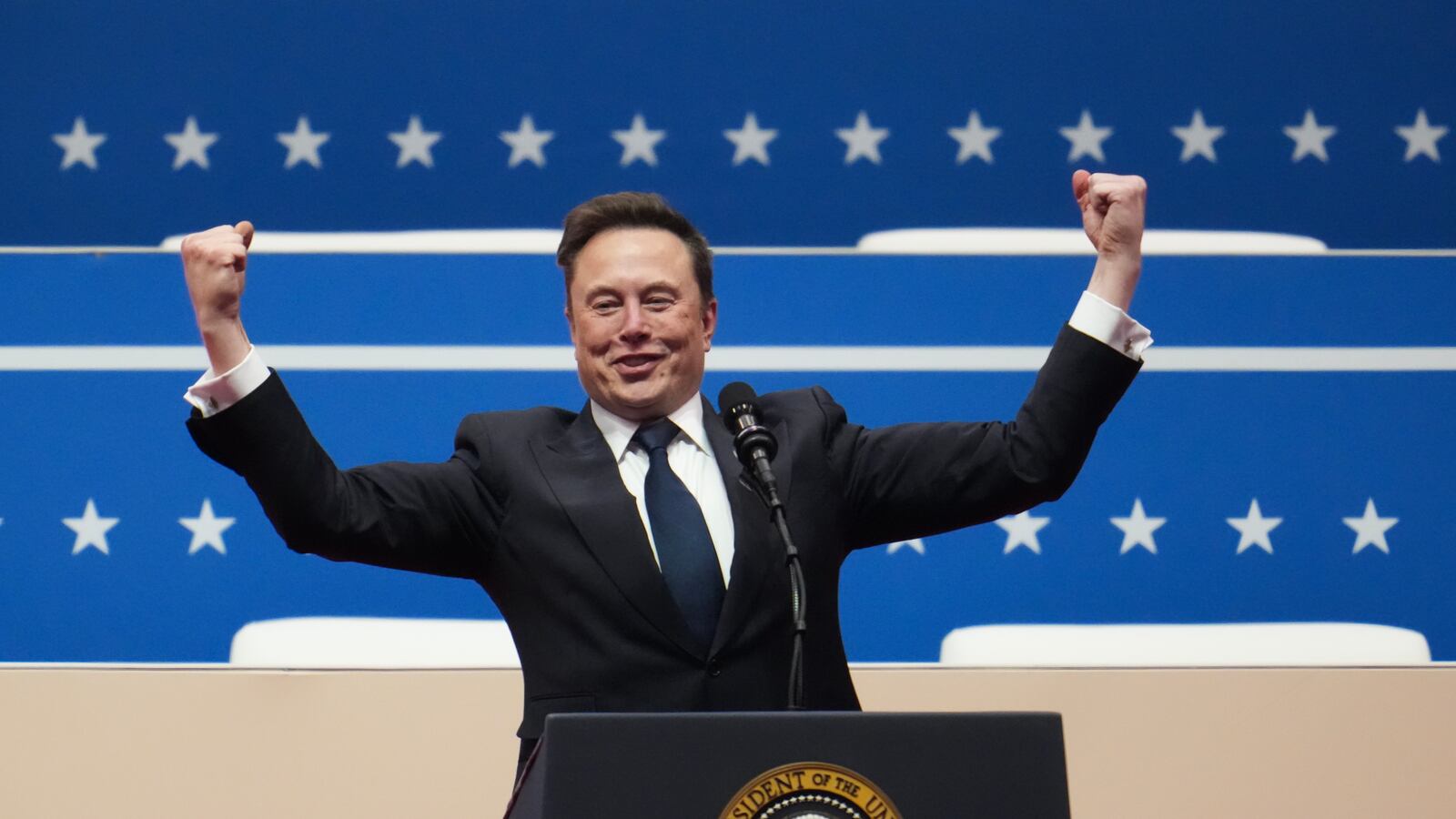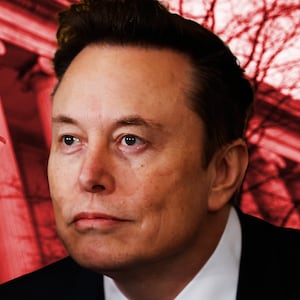The Trump administration has asked a federal judge in New York to let Elon Musk and his government efficiency task force minions back into the federal payments system.
In an emergency motion filed on Sunday, the government argued that a temporary restraining order blocking political appointees and special government employees—aka Musk’s baby-faced team—from accessing the system was a “remarkable intrusion” on the executive branch.
“There is not and cannot be a basis for distinguishing between ‘civil servants’ and ‘political appointees,’” the motion argued. “Basic democratic accountability requires that every executive agency’s work be supervised by politically accountable leadership, who ultimately answer to the President.”
On Friday, 19 state attorneys general filed a lawsuit alleging that President Donald Trump and the Treasury Department had given the Musk-led “department” of government efficiency—or DOGE—access to millions of Americans’ personal and private information, including bank account and social security numbers. The Treasury’s payment system processes nearly $5 trillion in payments annually.
The states argued that giving DOGE’s team members—who are designated as short-term “special government employees”—access to the federal payments system violated the Administrative Procedure Act, exceeded the statutory authority of the Treasury Department, and violated the U.S. Constitution.
On Saturday, judge Paul A. Engelmayer issued the restraining order based on the court’s “firm assessment” that the states would face irreparable harm without injunctive relief. Allowing the DOGE team access increased cybersecurity risks, he wrote, and the states had shown a “likelihood of success” on the merits—particularly their statutory claims, he wrote.
That ruling prompted a meltdown in MAGAland, with Musk calling Engelmayer a “corrupt judge” who needed to be impeached. Engelmayer was nominated to the bench by President Barack Obama in 2011 and confirmed by the Senate 98-0.
Vice President JD Vance also weighed in, comparing Engelmayer to a judge telling a general how to conduct a military operation.
“Judges aren’t allowed to control the executive’s legitimate power,” he wrote in a post on social media. Others were quick to point out that, as any second-year law student knows, it’s the federal judiciary that determines under what circumstances the exercise of executive authority is in fact legitimate. Vance graduated from Yale Law School in 2013.
In the emergency motion it filed on Sunday, the government claimed the restraining order was based on “ill-informed allegations regarding expansion of access to data systems within the Bureau of Fiscal Service.” Only Thomas Krause, the chief executive officer at Cloud Software Group, had “any level of access to any applicable payment or data systems,” it said.
Nevertheless, it said it was complying with the restraining order, which the parties were supposed to meet Friday to discuss. Following the emergency motion, they’re set to meet Monday to see if they can reach an agreement instead.








